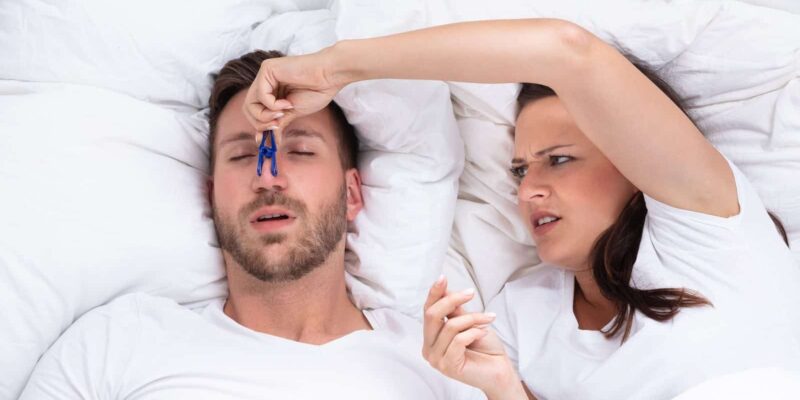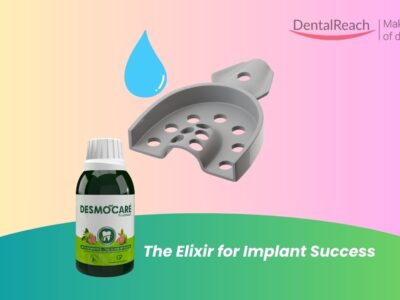People with sleep apnea are often prescribed a CPAP machine to help them obtain a decent night's sleep, but there is a rising alternative to the bulky, noisy machines.
Mandibular advancement devices (MADs), which are similar to mouthguards, have been demonstrated to function as well as CPAP in treating sleep apnea in many patients, according to experts.
MADs are a type of mental illness "become an ever-increasing component of our work. We frequently recommend and offer the oral appliance as a therapy option for sleep apnea "Dr. Jing Wang, an assistant professor of sleep medicine at Mount Sinai's Icahn School of Medicine in New York City, agreed.
"Oral appliances haven't been around as long as CPAP, but they've gained a lot of traction in recent years and can be just as effective as CPAP for the proper patient," Wang said.
When your throat muscles relax to the point of collapse and block your airway while you sleep, you have obstructive sleep apnea. When this happens, your body runs out of oxygen and you have to wake up every few minutes to gasp for air.
According to the National Sleep Foundation, people with severe sleep apnea can wake up more than 30 times each hour while trying to sleep. The most common adverse effect is daytime tiredness, but sleep apnea has also been related to major health issues like high blood pressure, heart disease, and diabetes.
Patients with sleep apnea who use a CPAP (continuous positive airway pressure) machine wear a mask all night to keep their airway open.
However, according to Dr. Mitchell Levine, president-elect of the American Academy of Dental Sleep Medicine, CPAP equipment can be inconvenient to operate.
The masks can make individuals feel claustrophobic, the machine's loudness can wake up bed partners, and people who use CPAP can get dry eyes, bloody noses, and facial sores, according to Levine.
As a result, some individuals who suffer from sleep apnea are turning to oral devices for relief.
Mouthguards help to keep the airways open.
According to Dr. Colleen Lance of the Cleveland Clinic's Sleep Disorders Center, these devices are made up of two components that cover your upper and lower teeth and are joined by a mechanism that uses your upper jaw as leverage to push the lower jaw forward.
"You're manually splinting the airway open by pushing the lower jaw forward and getting the tongue base out of the way," Lance explained.
MADs are comparable to over-the-counter snoring devices, but they are custom-made by dentists in collaboration with sleep experts, according to Lance and Levine.
The upper and lower components are moulded to your teeth, and your dentist will conduct a physical examination of your airway, including X-rays, to establish the precise adjustment you'll require.
"They figure out how many millimetres forward—we're talking millimetres here, itty-bitty movements of the lower jaw—they'd have to shift the lower jaw to maintain that airway open," Lance explained.
To avoid your jaw suffering or your bite shifting abruptly, these modifications are normally made very gently over a few weeks, according to Lance.
"They slowly start inching that lower jaw forward, millimetre by millimetre, once you're used to sleeping with the gadget," Lance explained. "Your jaw despises changes, and it despises quick changes even more."
These specialised devices aren't cheap, costing between $1,500 and $2,000, but experts say Medicare and most insurance plans will cover them.
According to the American Sleep Association, off-the-shelf products cost between $75 and $150. However, "Getting the device to stay in the mouth is one of the more difficult tasks. It's like putting a size 10 shoe on a size 8 foot if it's not custom fit "According to Levine.
The gold standard for treating sleep apnea is continuous positive airway pressure (CPAP) "We're confident that we can eliminate your apnea problem straight away. It's a foregone conclusion. I'm confident I'll be able to get it to you promptly. It makes no difference if you have mild, moderate, or severe apnea "Lance said.
Oral gadgets are not suitable for everyone.
Patients will often be started on a CPAP to get their sleep apnea under control these days, with an oral device being provided as a potential long-term treatment afterwards, according to Lance.
"Some people will be able to have both," Lance predicted. "They'll have a CPAP machine at home when they're doing their typical thing, but if they travel a lot for work, they'll travel with a dental appliance."
According to Lance and Levine, these oral devices are now recommended only for persons with mild to moderate sleep apnea. Who will benefit from the device is also influenced by their weight.
"The greater your BMI, the less probable it is that the dental appliance will operate," Lance explained. "Any additional weight will further narrow that airway."
However, current research suggests that MADs may be just as helpful as CPAP for some people with severe apnea.
According to a recent evidence assessment, MADs gave just as much benefit as CPAP in terms of tiredness and quality of life in individuals with severe sleep apnea.
The review concluded that CPAP was better at reducing the number of waking events that patients had and improving their blood oxygen levels.
In two-thirds of cases of moderate to severe sleep apnea, oral appliances reduced awakening occurrences by more than 50%, according to a French study of roughly 350 patients.
"I believe the literature will eventually expand to encompass people with greater BMIs and more severe sleep apnea," Wang said.
More information: Guillaume Buiret et al, Predictive Factors for Efficacious Oral Appliance Therapy in Moderate to Severe Obstructive Sleep Apnea Patients, The Laryngoscope (2021). DOI: 10.1002/lary.29439
Julia A.M. Uniken Venema et al, Mandibular advancement device design: A systematic review on outcomes in obstructive sleep apnea treatment, Sleep Medicine Reviews (2021). DOI: 10.1016/j.smrv.2021.101557
The American Sleep Association has more about mandibular advancement devices.
Journal information: Laryngoscope




















Comments